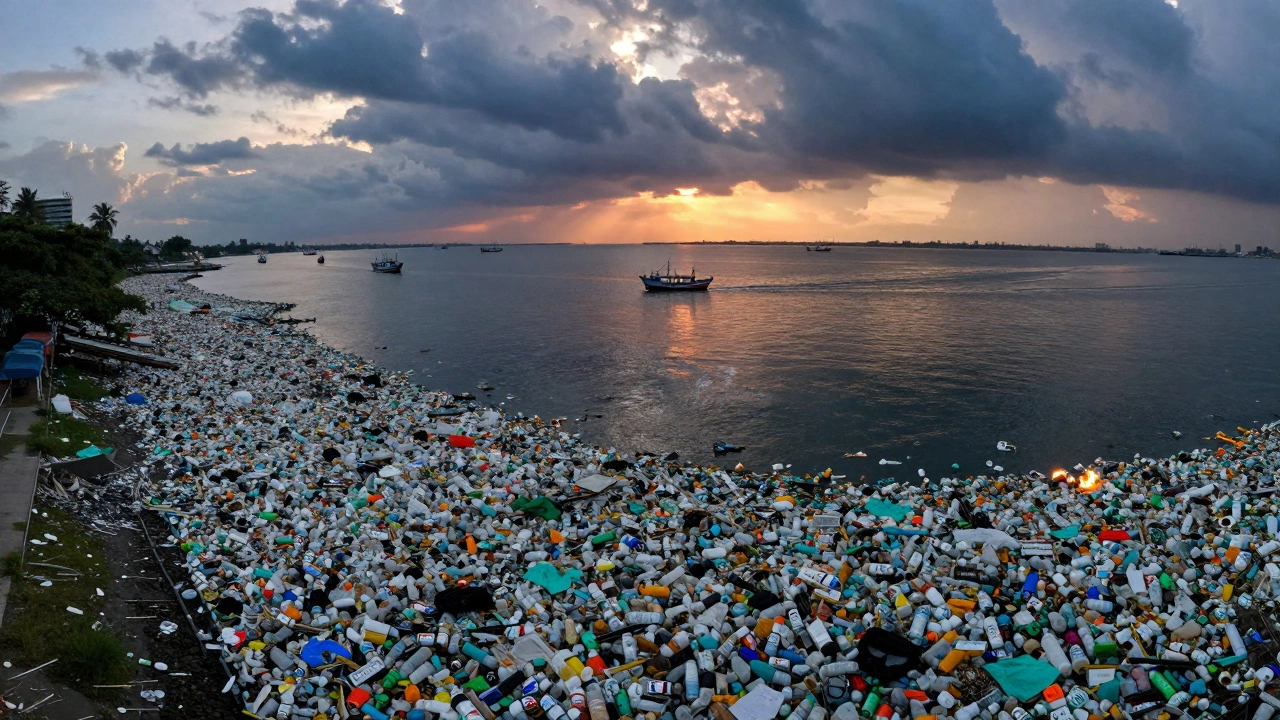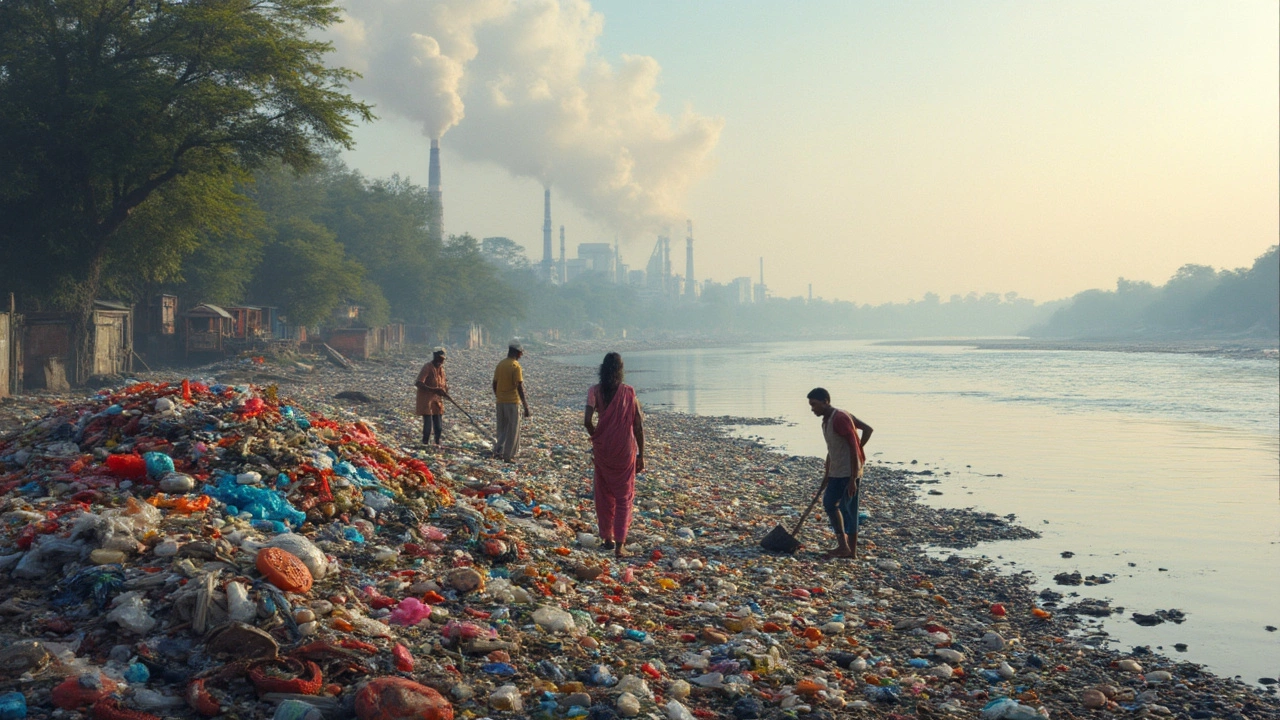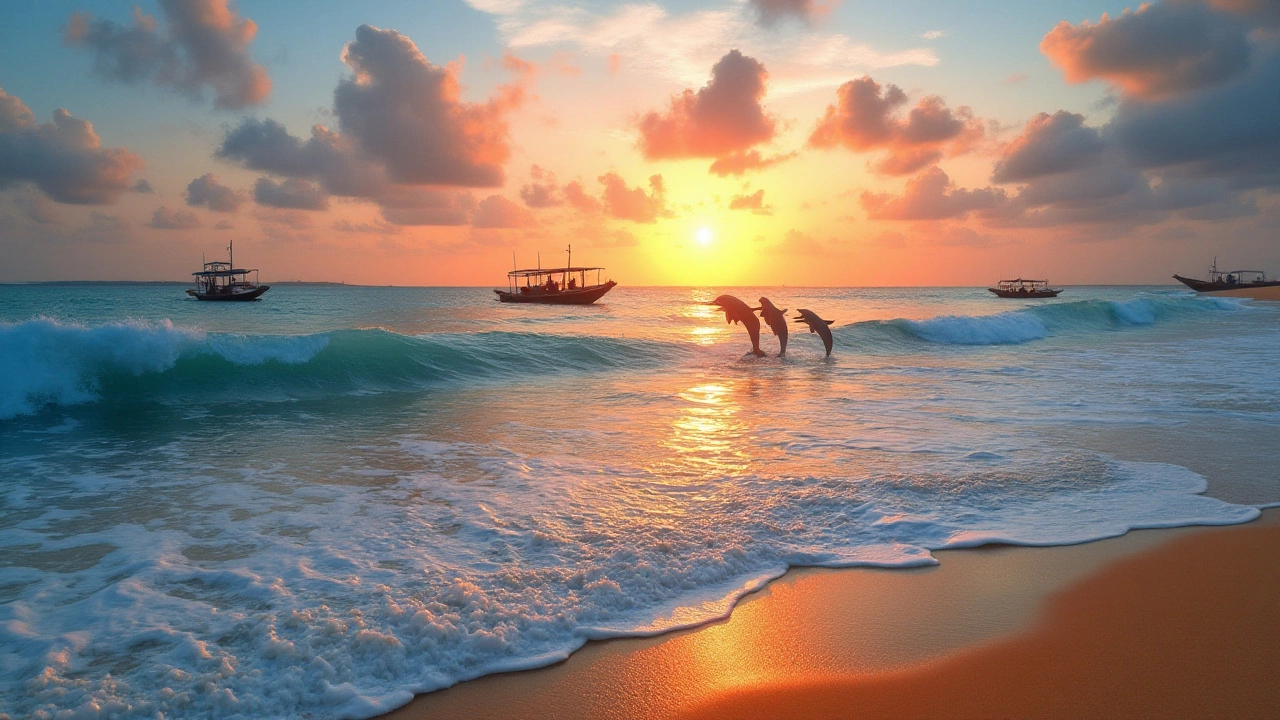Plastic Pollution – Why It Matters and How You Can Help
Every day we see plastic bottles, bags and packaging littering streets, oceans and even our backyard gardens. It’s not just an eyesore – that rubbish breaks down into tiny particles that end up in the food chain and harm wildlife. If you think the problem is far away, think again: a recent study shows that just three countries are responsible for more than half of the world's plastic waste.
What the Numbers Say
According to the Global Plastic Waste Statistics 2025, the world throws away about 400 million metric tons of plastic each year. Of that, only 9% gets recycled and the rest either burns or ends up in landfills and oceans. In India, the per‑capita waste is rising fast, with cities like Mumbai and Delhi adding over 2 million tons of plastic annually. Those numbers aren’t just scary – they point to a clear need for better management.
Practical Steps for Businesses and Consumers
If you run a business, start by auditing your packaging. Switch to reusable or biodegradable options wherever you can. Offer customers a discount for bringing back containers; that simple incentive can cut waste by up to 30% in some stores. For everyday shoppers, keep a reusable tote in your car, say no to single‑use cutlery, and choose products with minimal plastic. Small habits add up fast.
Urban Polymers India is tackling the issue from the manufacturing side. We invest in sustainable resins, use recycled feedstock in our production lines, and work with partners to set up local recycling hubs. By designing products that are easy to disassemble, we make sure the end‑of‑life phase doesn’t add to the landfill load.
Another easy win is proper sorting. When you separate plastics from paper and organic waste, recycling facilities can process them more efficiently. Many municipalities now provide separate bins for PET bottles, which have a high recycling rate. If your area doesn’t have curbside recycling, check for nearby drop‑off points – many NGOs and community groups run them.
Education is a powerful tool. Talk to friends and family about why shaking a bottle before recycling matters – it removes contamination that can ruin an entire batch. Schools are also great places to start campaigns; a student‑led clean‑up day can inspire whole neighborhoods to keep their streets clean.
Finally, stay informed. Follow updates from organizations that track plastic pollution trends, like the Ocean Conservancy or the Plastic Pollution Coalition. Knowing the latest legislation, such as bans on single‑use plastics, helps you stay ahead and make smarter choices.
Plastic pollution won’t disappear overnight, but every action you take pushes the needle in the right direction. Whether you’re a manufacturer, a small shop owner, or just someone who loves a clean beach, you have the power to reduce waste and protect the planet. Start today – pick up that stray bottle, ask for a reusable bag, or ask your supplier about recycled material. Small steps today lead to a cleaner world tomorrow.
Which Country Has the Worst Waste Problem? Plastic Pollution and Manufacturing Hotspots
The Philippines has the worst plastic waste problem globally, with most waste leaking into oceans due to weak collection systems and unregulated plastic manufacturing. Despite lower production than China or the U.S., its mismanagement makes it the top polluter.
Plastic in the Ocean: Which Country Leads the Pack?
This article takes a closer look at which country is responsible for dumping the most plastic into the ocean and how this problem affects everyone. You'll get numbers, reasons why it's happening, and what role plastic manufacturers play. Find out why some countries struggle more with plastic waste and what can be done to fix it. Expect real stats, practical tips, and relatable stories. It's all about understanding the full picture of plastic pollution right now.
What is the Largest Source of Single-Use Plastic Waste?
Single-use plastics dominate our lives, creating a substantial portion of global waste. This article explores the biggest culprits, focusing on the top prevalent single-use plastic items. You'll also discover some lesser-known facts and effective tips to reduce reliance on these disposable products in our daily routines.
The Cleanest Ocean: An Exploration Into Pristine Waters
Oceans have become increasingly polluted due to the pervasive presence of plastic waste. In the quest to preserve marine life and our environment, identifying the cleanest ocean is crucial. This article delves into the current state of our oceans, highlighting the factors contributing to their cleanliness. Tips on supporting ocean conservation efforts are provided to encourage individual responsibility.



